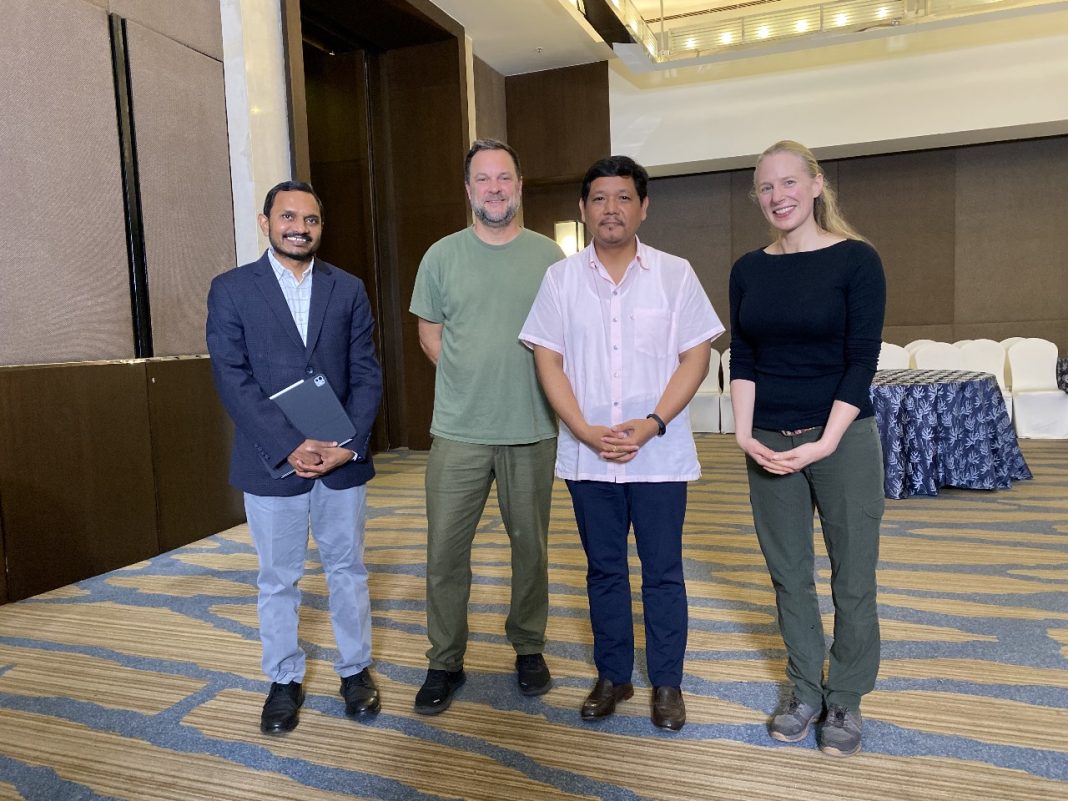Shillong, Nov 8: Meghalaya’s impressive reduction in maternal deaths is being taken up as a case study at Harvard University.
“Harvard’s production team visited Meghalaya to document this journey, capturing insights from state leaders, healthcare workers, and community representatives” the State Capability Enhancement Project (SCEP) shared on its social media post.
A production crew from Harvard was in Meghalaya from October 27 to November 1st, 2024 to document the case, conducting interviews with, and capturing insights from key leaders, stakeholders, and community members central to these efforts.
The Harvard team interviewed key stakeholders including Chief Minister Conrad. K Sangma along with Principal Secretary, Health & Development Commissioner Sampath Kumar, and others.
The Adaptive Leadership online course, offered by Harvard University will focus on developing the skills necessary for leaders to navigate complex and challenging environments.
Harvard’s production team, along with the team from the office of the Development Commissioner, Government of Meghalaya, travelled to two hard-to-reach villages under the remote Mawlat Sub-Centre: Wahlyngdoh and Lynshing, both of which have recorded almost zero maternal and infant deaths in the past one year.
The course emphasizes the distinction between technical problems, which have clear solutions, and adaptive challenges, which require innovative thinking, collaboration, changing the status quo and the ability to manage uncertainty. The course will explore how leaders can mobilize people to tackle these challenges, promote organizational change, and foster resilience in the face of adversity.
State Capability Enhancement Project (SCEP) was initiated in Meghalaya as a model to tackle complex development challenges by building a sense of purpose among state agencies.
Its mission is to revolutionize how governments approach performance improvement by focusing on developing a high-performing and motivated workforce. The case study will be in the Adaptive Leadership course at Harvard University.
“Meghalaya’s data-driven, community-led health interventions have saved lives, providing a model of effective public health strategy,” the post says.
“Once grappling with high maternal mortality rates, Meghalaya implemented data-driven policies and empowered local communities to address this urgent public health crisis. The results — a 50% reduction in maternal deaths — demonstrate the power of adaptive leadership and cross-sector collaboration” the post says.
Several students at Harvard have studied Meghalaya’s health systems during their internships.
Priya Sarma at the Harvard Chan School of Public Health, had spent her summer in Meghalaya, working to strengthen health systems with a specific focus on women’s leadership and agency. “I have grown as a researcher and a person, and I have often thought about what the future of health systems strengthening looks like. Empowering women is crucial as it can translate into improved health and educational outcomes for both women and children” she says in her blog reflecting on the fellowship.
“I had the opportunity to talk about my work as a Cultural Bridge Fellow at a [local] Rotary Club meeting and to engage with community members about the ongoing challenges that exist in the health sector in Meghalaya,” Priya said. “It felt like a cultural bridge was being formed,” she says.
Laura Martinez Rodriguez at Harvard worked closely with the SCEP Team to help design the strategy for the various projects, facilitate project implementation, and conduct research for learning and adaptation (projects: maternal and Child Health, Early Childhood Development, women’s Leadership, and natural resource management.
Principal Secretary for Health Sampath Kumar had spoken on the initiatives which have seen a decline in maternal deaths in Meghalaya. “However, our goal as a state is to reduce it even further,” he said.
Weekly review meetings and in-depth root cause analyses have become the backbone of Meghalaya’s approach to reducing maternal mortality. By identifying the specific challenges faced by mothers in remote areas, health officials have been able to deliver support where it’s needed most.
Sampath Kumar said Meghalaya’s decentralized health system has fostered a spirit of accountability and pride among local healthcare teams, who are now empowered to respond directly to the needs of their communities.




